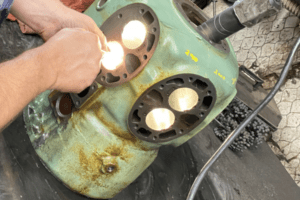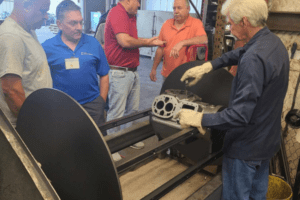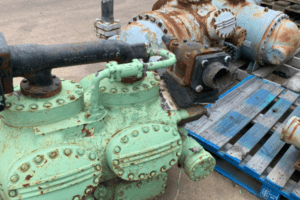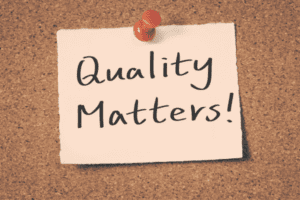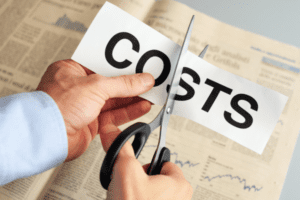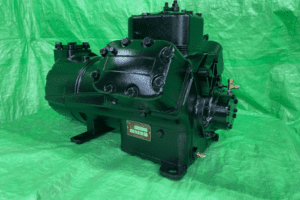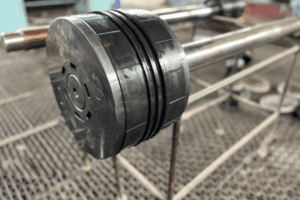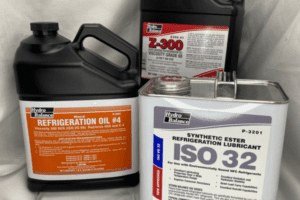When assessing the efficiency of an HVAC/R system, all operating expenses should be considered, including the cost of energy consumption, maintenance, repairs, and eventually equipment replacement. Although a variety of factors can affect the efficiency of HVAC and refrigeration systems, the compressor plays a major role in the overall performance of these systems. The consequences of using an underperforming compressor can be multi-faceted and damaging to your company’s bottom line. By reading the rest of this post, you’ll find out how an inefficient compressor can decrease your profit margin.
Higher Operating Expenses
Nowadays, businesses rely on HVAC/R systems to provide an acceptable level of indoor comfort and air quality, and ensure the safety of food products. Because HVAC systems must maintain comfortable and constant indoor temperatures, irrespective of the thermal loads resulting from ambient weather conditions, building occupancy, and indoor activities, they need to run almost continuously during business hours. As well, refrigeration equipment must operate 24 hours a day, 365 days a year in order to keep refrigerated compartments cold constantly. These factors have turned HVAC and refrigeration into two major areas of energy consumption, accounting for more than 50% of total energy consumption, according to recent research.
One important yet often overlooked aspect is that underperforming compressors can make energy bills skyrocket. That’s because a compressor that becomes less efficient over time will end up consuming more and more energy. A few common factors that can negatively impact the efficiency of a compressor include lack of maintenance, worn out components, increasing ambient temperatures, poor ventilation, poor quality lubricant, and improper refrigerant charge. As an example, an inadequate charge of refrigerant can reduce the efficiency of an HVAC/R system by up to 20%, leading to higher running costs.
Also, the efficiency of some compressor types can be significantly lower under part-load conditions. In applications where HVAC/R requirements have changed and part-load operation has become the norm, using variable-speed compressors instead of single- or dual-stage compressors that lack advanced capacity controls can reduce energy consumption considerably.
Increased Maintenance Costs
An underperforming compressor that doesn’t provide the cooling output required to meet specific refrigeration or air conditioning needs may lead to numerous service calls over the life of the unit. This will increase the costs incurred by your organization. Another important aspect is that most underperforming commercial and industrial compressors utilize obsolete technologies, and often cannot be retrofitted with new features. Not only are obsolete technologies less efficient than the latest developments; finding qualified technicians who are able to service obsolete systems and sourcing compressor parts and accessories that are no longer mass-produced can be difficult as well. All these can lead to unplanned delays, prolonged downtime, and higher maintenance and repair costs.
Lower Productivity
In today’s business world, organizations are constantly trying to make their employees more productive. One factor that can positively influence employee productivity in the workplace is the indoor environment. Recent research has shown that improving indoor air quality and providing a comfortable environment can increase employee productivity by up to 10%.
An HVAC compressor that no longer operates efficiently cannot maintain the temperature and humidity levels required to provide a comfortable indoor environment. Excessive heat and inadequate ventilation in the workplace can cause discomfort and distraction, and even increase the risk of injuries. Depending on the type of business you’re running, an uncomfortable indoor environment may also drive away your customers and even potential investors. All these factors can play a huge role in revenue slippage, with a direct negative effect on your bottom line.
The performance impact of underperforming HVAC/R compressors is critical to the operation of any commercial or industrial facility. Although the energy efficiency of HVAC/R systems often involves a trade-off between initial costs and on-going operating expenses, maintaining your equipment regularly can preserve and even increase compressor efficiency. A compressor that maintains its efficiency over time will allow you to save energy, reduce operating costs, and better conform to DOE’s new compliance guidelines. All these can result in hefty savings, which in turn will improve your bottom line and help your business become more competitive.


